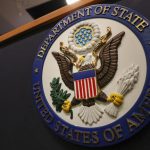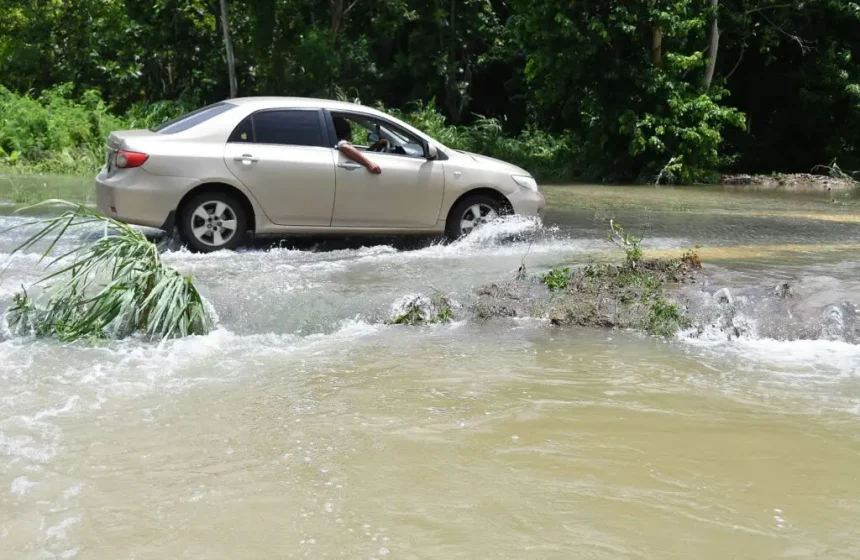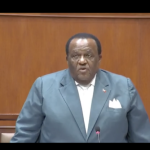The Inter-American Development Bank (IDB) has signed an agreement with the United Nations Development Programme (UNDP) that will help with the collection and sharing of critical climate and weather data, advancing efforts to support climate adaptation and enhance regional climate coordination in Latin America and the Caribbean.
The agreement gives the IDB, as an implementing entity, access to financing through the Systematic Observations Financing Facility (SOFF), which provides funding and technical assistance for countries to improve weather forecasts, early warning systems and climate information services
The IDB will first implement the SOFF programme in Belize with a grant of over US$800,000 from the SOFF steering committee, followed by projects in The Bahamas, Barbados, Ecuador, Guatemala, Guyana, Haiti, Jamaica, St Kitts-Nevis, and Trinidad and Tobago.
“By enhancing evidence and data for climate and environmental monitoring, the partnership with SOFF will generate crucial information that will expand countries’ preparedness and resilience to climate change. At the IDB, we are paving the way for other MDBs to access SOFF and explore further collaborations with UNDP-administered funds,” said IDB President Ilan Goldfajn.Secretary-General of the World Meteorological Organization (WMO) and co-chair of the SOFF Steering Committee, Professor Celeste Saulo, said many of the countries most vulnerable to climate change lack the basic observational data crucial for monitoring, understanding and predicting weather and climate patterns.
“This gap doesn’t just affect local forecasts, it impacts our global ability to respond to climate challenges. But SOFF is a fantastic example of how action can be taken at speed and scale to fill this gap,” Saulo added.UN-MPTF Office Executive Coordinator, Alain Noudéhou, noted that the UN Multi Partner Trust Fund Office (MPTFO) is proud to sign this landmark agreement with the Inter-American Development Bank (IDB).
“This agreement establishes a strong partnership between the SOFF and the IDB and will leverage additional resources towards closing the basic weather and climate observations data gap. It is our hope that the agreement will pave the way for an expanded cooperation with the IDB in UN pooled funds and in support of global development priorities and the achievement of the SDGs.”
The agreement also makes the IDB one of the first Multilateral Development Banks (MDBs) to access a UN-administered Multi-Partner Trust Fund and exemplifies work that MDBs have been doing with the UN and UN agencies to enhance collaboration.SOFF is a financing mechanism established in 2021 by the World Meteorological Organization (WMO), the United Nations Environment Programme (UNEP) and UNDP to support the collection and sharing of critical weather and climate data around the world.
It follows the standards of the Global Basic Observing Network (GBON) and targets countries with significant gaps in weather and climate data, prioritizing Least Developed Countries and Small Island Developing States
The IDB is one of nine SOFF implementing entities that play an important role in supporting countries‘ meteorological and hydrological services development.
The IDB said this partnership aligns with its strategy on Biodiversity, Natural Capital, and Climate Action.It said SOFF’s weather data and capacity building will support climate adaptation, strengthen regional coordination, and reduce vulnerability to climate change for countries and communities.
The programme also strengthens the IDB’s regional initiatives, including America en el Centro and One Caribbean, by mobilizing resources for these efforts and promoting collaboration among countries.
SOFF is currently funded by a pool of donors including Austria, Belgium, Canada, Denmark, Finland, the Kingdom of the Netherlands, Nordic Development Fund, Norway, Ireland, Iceland, Spain, and the United States.
It operates across three phases: the Readiness Phase, which provides technical assistance to assess data gaps and develop National Contribution Plans; the Investment Phase, which offers grants to upgrade or install new surface land or upper-air stations and build capacity; and the Compliance Phase, which delivers results-based financing and peer advisory to maintain data-sharing stations according to GBON standards.
The IDB played a crucial role in shaping SOFF’s design, collaborating with the WMO, UNEP, and UNDP and partners including other Multilateral Development Banks (MDBs) throughout 2020 and 2021, to align SOFF with the needs of its member countries.










